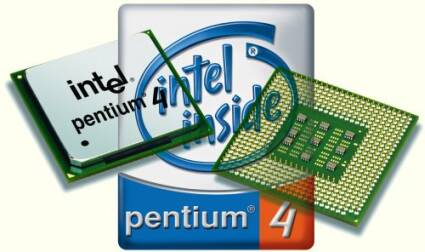Hot Microprocessor News
It's Giga Hertz Time
It's hardly more than 48 hours ago that Intel regained the speed crown for the fastest microprocessor with Pentium 4 at 2 GHz . In return AMD dropped its prices so much that even the slowest Pentium 4 looks like a badly overpriced product. However, this price cut won't be good enough if AMD wants to remain a big enough player in this processor game. Informed people know that Athlon is an excellent product that doesn't need staggering clock speed numbers to compete with Pentium 4. The majority of buyers out there however, is buying clock speed. We've now reached a clock difference of 600 MHz between Intel's 2 GHz Pentium 4 and AMD's 1.4 GHz Athlon processor. It's tough to convince unknowing customers that 1400 is the same as 2000. AMD needs to come up with something and it should be rather soon.
Northwood Chasing Willamette
Before we will get to the latest developments and ideas of AMD, we should start with the latest Intel stuff, simply because it is shorter, easier to understand and because it is IDF time, where Intel is 'architecting the digital universe' for all the poor bastards that think that the many billion year old analog universe just ain't good enough.
Right now Intel is shipping samples of future Pentium 4 processors with the 0.13 micron core 'Northwood' to OEMs, at core clocks of 2 and 2.2 GHz. Those samples are of 'A2'-stepping, but running just fine, even though the A2-microcode (that is always used to fix minor processor bugs and usually found in the motherboard's BIOS) is only in beta stage. As we already know, the future 'Northwood' Pentium 4 will have 512 kB second level cache, which is one reason why its performance is superior to that of the current 'Willamette' Pentium 4. The 0.13 micron process ensures a lower power dissipation, so that Northwood will remain cooler than Willamette, at least at clock speeds of 2 and 2.2 GHz.
Northwood's performance advance over Willamette is just enough to equalize the performance loss that you encounter when running Pentium 4 in a i845 motherboard with PC133 SDRAM instead of an i850 motherboard with PC800 RDRAM. Therefore the 'Northwoods' will be some 5-10% faster than current Pentium 4 processors at the same clock, which is due to more than just the doubled L2-cache size. Other architectural improvements that haven't been disclosed yet are also responsible for the improved performance.
The new Pentium 4 is currently targeted for a release in December 2001, but since times are difficult Intel may release it earlier.
Get Tom's Hardware's best news and in-depth reviews, straight to your inbox.
